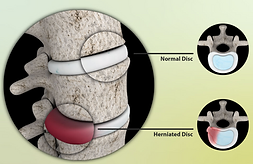SMAC & Injury Rehab.

Dr. Maria M. San Martin
Dr. Maria M. San Martin
Chiropractic Physician
Chiropractic Physician


Car Accident Clinic
Call at (352) 352-5002
San Martin Accessible Care
Car Accident Effects
Car Accident Effects
Being involved in a car accident can have a huge impact in your life resulting in major medical problems. In 2021, 401,533 accidents were reported in Florida averaging 1,100.09 accidents per day. Using a seat belt may protect from catastrophic consequences however, our bodies can suffer from major injuries such as: broken bones, burns, head/neck and/or mid/low back trauma, brain and/or spinal cord injuries. There are many causing factors such as but not limited to: speed of travel, type of vehicle, and/or collision impact.

WHIPLASH
WHIPLASH
Whiplash is a neck injury that can occur when the head suddenly moves backward and then forward rapidly.
It causes vertebrae, spinal discs, muscles, nerves, ligaments and tissue in your neck to become injured.
This type of injury can occur for example in a rear end automobile collision or a front end automobile collision.
The most common symptoms of a whiplash:
- neck pain
- dizziness
- pain in arms or hand
- numbness in arms or hands
- ringing in the ears
- blurred vision

NECK / MID BACK / LOW BACK PAIN
NECK / MID BACK / LOW BACK PAIN
During a car accident, your neck may suddenly jerk forward and backward. With your body restrained by a seat belt, your neck takes the brunt of the force. It can also cause your neck to move side to side forcefully.
If you realize an accident is about to occur, you may tense up your muscles, increasing your risk of muscle strain. This forceful action can damage ligaments, muscles, discs, nerves, joints, tendons and bones.
Your low back can also be injured in a car accident.
Signs you may have injured your low back include:
- pain or tenderness
- Worsening pain with movements, coughing, sneezing or laughing
- stiffness
- difficulty moving

NUMBNESS OR TINGLING IN EXTREMITIES
NUMBNESS OR TINGLING IN EXTREMITIES
Nerves are sensitive tissues that are an essential part of the human body.
Car crashes can cause swelling, herniated discs, whiplash and other internal injuries that can press against your nerves and cause nerve damage, resulting in pain, numbness and tingling after an auto accident.
Allowing nerve damage to go untreated after a car accident can potentially lead to serious long-term consequences and nerve pain.
If you are experiencing numbness and tingling in your toes, feet, legs, fingers, hands or arms, you need to seek help for possible nerve damage treatment.

SHOULDER AND ELBOW PAIN
SHOULDER AND ELBOW PAIN
Force of impact from a car accident can cause your shoulder and elbows to twist or bend uncomfortably, overstretching the ligaments. When the ligaments are strained, you will likely experience elbow pain, as well as difficulty when bending and straightening your arm.
In some occasion, specially on the opposite side of the seat belt the force produced by the impact, can tear a ligament on the shoulder. This can limit your ability to move and lift your arm, causing severe pain, sometimes needing surgical intervention.

HERNIATED/ BULGED DISCS
HERNIATED/ BULGED DISCS
A rupture or herniated disc can cause significant amount of pain and can interfere in the quality of your life.
A herniated disc occurs when the nucleus of the disc ruptures through the fibrous outer layer, or annulus and protrudes into your spinal canal. This disc can compress and/or irritate the spinal nerve roots causing severe pain , numbness or tingling of the extremities.
Bulging and Herniated discs can be the result of a traumatic event like a car accident or slip and fall.
Herniated discs can respond well to conservative care techniques like chiropractic adjustments to the spine.

KNEE AND ANKLE PAIN
Knee swelling and muscle spasms are often associated with dashboard knee injuries and injuries to the collateral ligaments or a fracture patella.
In severe car crashes, the kneecap is prone to injury because it is exposed and the leg is usually bent while driving.
The ankles are also susceptible to strains and sprains which occur when the soft tissue are damaged in a car accident.
In many cases, a foot or ankle can sprain or fracture due to the impact and pressure of the collision.